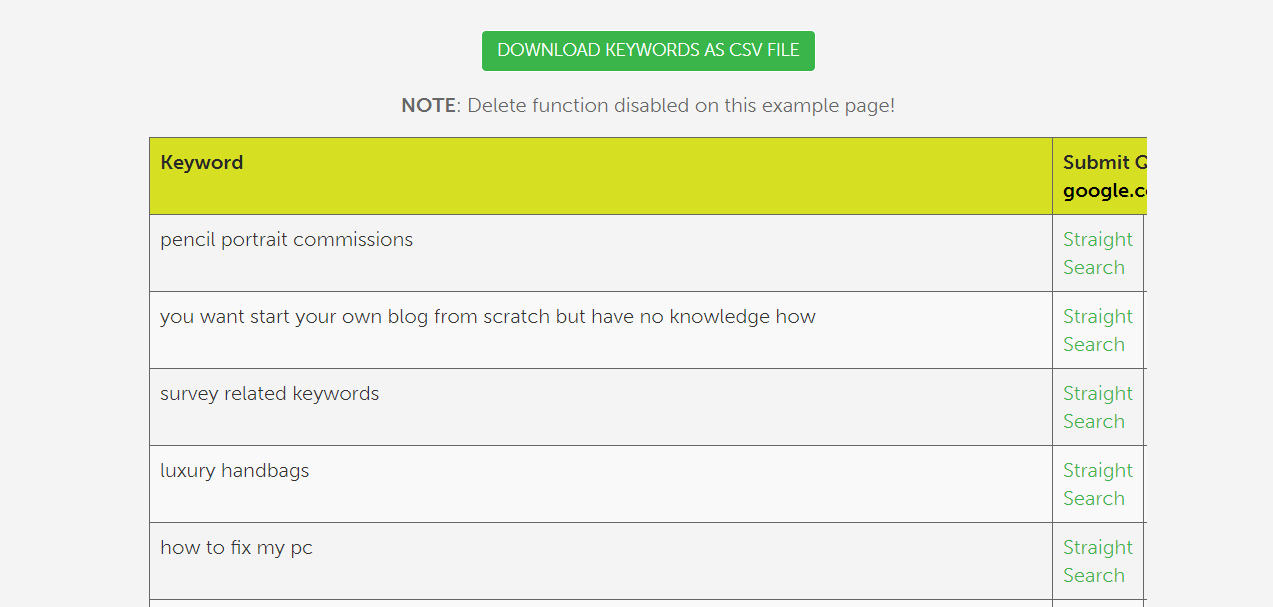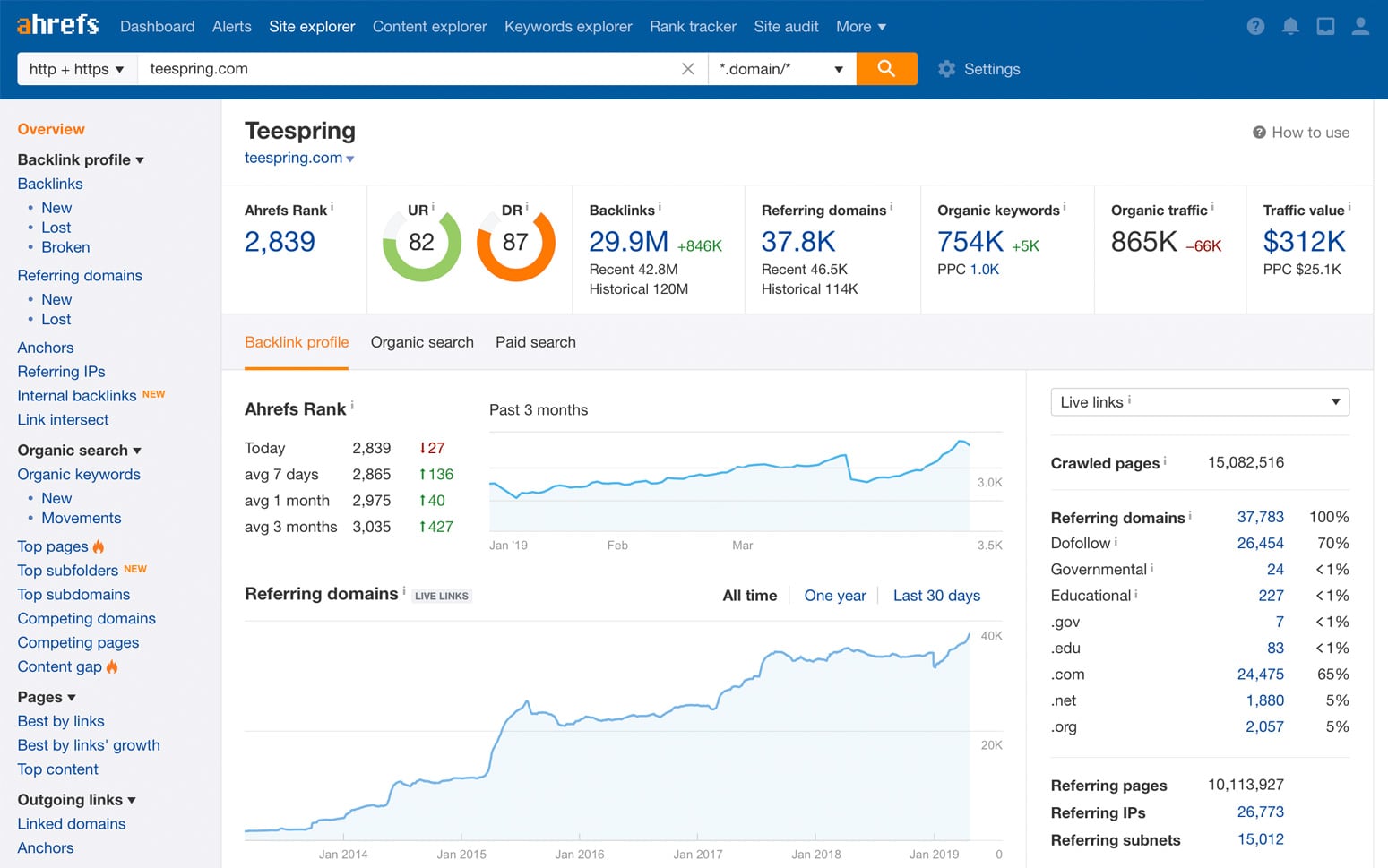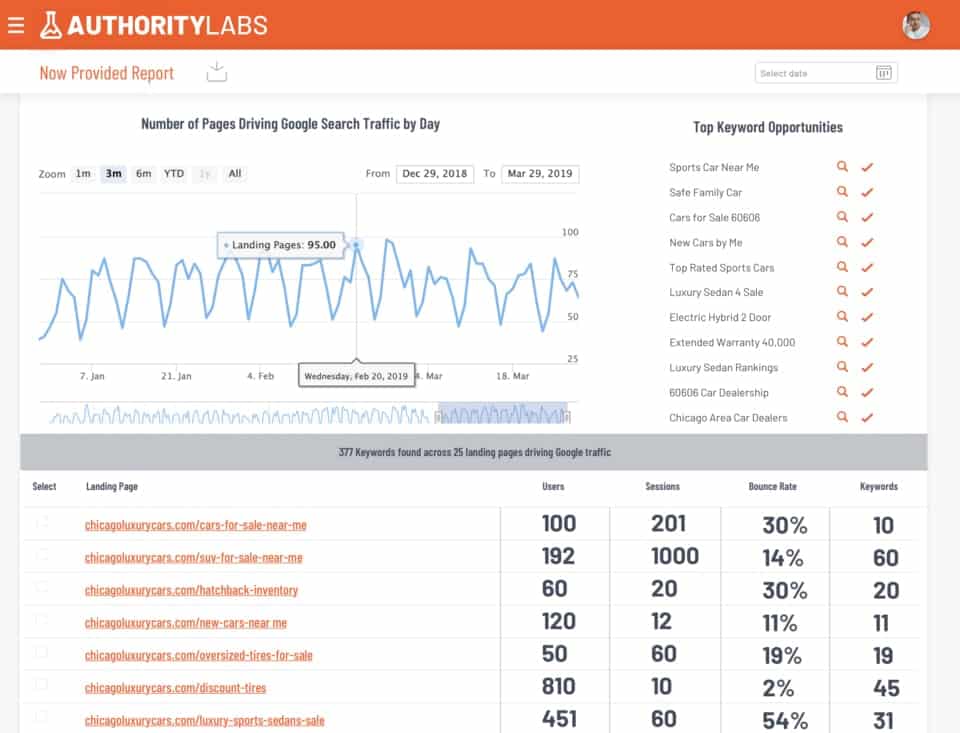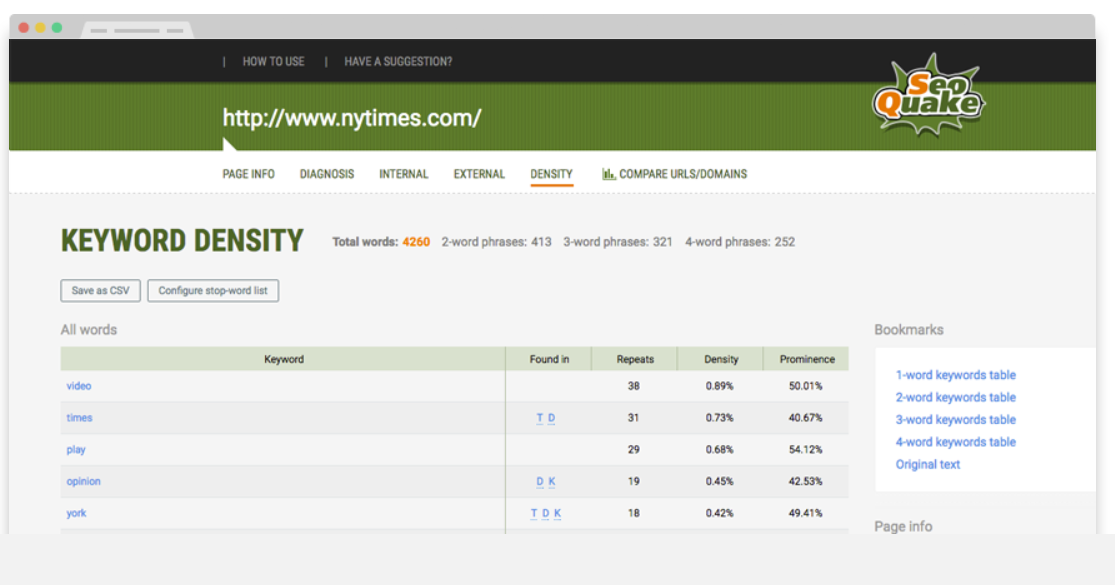Keyword research is an essential part of SEO.
But to get it just right, you’ll need the help of a tool.
In this article, I’m giving you my top ten picks for the best keyword tool, both free and paid.

What We’ll Cover:
Why Perform SEO Research Anyway?
Search algorithms have changed drastically over the years. Because of these broad changes, many marketers question whether SEO is even a valid method of getting eyes on a business’s pages anymore.
Since Google’s latest search updates focus more on search intent, is SEO research even necessary in the 2020s?
But what many fail to grasp is that these continued updates are part of a fundamental shift in SEO. Things like keyword stuffing and irrelevant links lead to being penalized, instead of overlooked by the algorithm as they once were.
But SEO and keyword research are still essential going forward. How we use the results of that research is what will affect the organic traffic we get from search engine results.
Performing keyword research today requires access to tools that will help us visualize the insights that the data presents to us.
There are both paid and free versions of keyword search tools. We’ll cover the best options in each category and give you a balanced view of what each does well.
Free Options for Keyword Searching
Free tools are the best place to start when you’re doing keyword research.
While their suggestions aren’t as refined as the paid options, they can be a useful tool in selecting and finding out more about the relevant keywords for your target demographic.
The key is relevancy, and the more relevant the keywords are, the better off your website will be.
Google Search Console
Google is the primary search engine for billions of people worldwide.
Many users of free keyword tools understand that Google is the best source for advice on what keywords are trending and to what extent. Google’s Search Console (formerly known as Webmaster Tools) gives you a backstage pass to how Google sees your website from a search engine’s perspective.
From here, you can fix indexing problems, as well as check the current traffic on our site. It’s a handy tool for search engine optimization and analysis of data points.
However, it’s impossible to perform any competitor research, and the latest version is missing a lot of functionality. It’s not bad for a free tool by any means, but it lacks some features that may be useful.
FatRank
FatRank is a Google Chrome extension that can help you figure out your ranking on Google. Once it collects data, it allows us to download a CSV from the toolbar or FatRank’s mobile application.
As a free tool, FatRank offers a lot of useful features, including unlimited keywords, reporting in both PDF and CSV formats, and a handy graph that notes how the website’s ranking has changed over time.
Because it comes with the ability to do competitor research, this is one of the most comprehensive free tools on the market.
It does have some problems, however. You can only perform research on one keyword at a time, and it doesn’t allow you to save any of your previous results.
Seed Keywords
This research tool approaches keyword research a little differently, as it requires you to have a ready pool of users who want to share their opinions.
What Seed Keywords does is craft a question that a user can answer. It then asks you to share the question with your audience through a link. The resulting answers come back to you, and from there, you can craft content based on the keywords the algorithm extracts from the question link answers.
The most significant downside to the tool is its limited scope. Results depend on the side of your audience, which means the keyword results may not be as accurate as other tools.

SEOQuake
SEOQuake is a useful tool for content marketers.
It’s a browser plugin that returns SEO metrics of any websites you visit. The plugin provides a lot of valuable information, including analysis of keywords on the site, a SERP overlay, and vital metrics like ranking data for Google, Alexa, and SEMRush.
Data can be exported to a CSV file for further analysis, if necessary. It’s a very in-depth tool, and, surprisingly, it remains free to use.
It’s undoubtedly one of the best for on-site SEO audits and garnering information about internal and external links. However, for new users, the high-level parameters can be a bit complex.
Paid Keyword Tools for SEO
While the best price for things is free, paid options bring valuable features and information with them.
The competition to provide valuable SEO data is fierce, and these companies make it worth the money you spend on them to help with research.
SEMRush
When someone mentions competitor analysis, the first name that comes to mind is SEMRush.
It offers a plethora of metrics and gives in-depth insight into the SEO tactics of your nearest direct competitors.
It’s one of the best tools available for PPC, keyword research, SERP rankings, ad campaigns, backlinks, and much more.
Traffic analysis tools make it easy to understand what drives your customers, and it’s ideal for doing technical SEO audits on content and coming up with results.
The pricing for SEMRush ranges between $99.95 monthly for the Pro plan, all the way up to $399.99 per month for the Business plan. Unfortunately, a lot of the more advanced features are locked behind higher price points.
Ahrefs
Ahrefs has a reputation for being one of the best laid out SEO keyword research tools on the internet.
Both experienced users and newbies alike find it simple to navigate and get relevant information from the interface. It boasts the second-fastest web crawler on the internet (Google being the first), and provides you with up-to-the-minute data.
Ahrefsgives you the chance to follow the ranking history of any keyword you use, as well as explore related keywords through its keyword explorer utility.
The most significant downside of Ahrefs is that it doesn’t offer more technical SEO feedback, such as site-load time. Additionally, their monthly fees can get quite expensive.
Ahrefs offers a seven-day free trial, with packages ranging from Lite at $99.99 per month up to Agency at $999 per month.

MOZ
MOZ is one of the most prolific and well-used SEO research tools on the market.
Moz covers the gamut of SEO keyword research. Its keyword analysis function allows you to do competitor research and even includes SERP analysis.
Moz also tracks historical ranking for keywords and allows you to perform site audits directly from your dashboard.
While it’s one of the most widely used SEO keyword research tools in the world, it does have some drawbacks. Results are only relevant to the US, and it tends to have a much more limited keyword research range than other competitors.
Moz offers users a 30-day free trial to check out their tools, and pricing begins at $99.00 per month, all the way up to $599.00 monthly for their Premium package.
Authority Labs
Authority Labs offers a user-friendly interface that makes it more accessible to novice researchers than its competitors.
Location-specific tacking helps to keep an eye on local and regional customers, and its research tools let you target your desired keywords effectively. Extensive daily reporting is available for those looking to keep a close eye on daily progress.
The most significant drawback of the tool is that its keyword results come sorted alphabetically, and there doesn’t seem to be any way to change that setting.
Authority Labs pricing starts relatively low at $49.00 per month, with its top-end offering available at $450.00.

Serpstat
Serpstat provides keyword research, competitor research, and even PPC statistics.
The dashboard is simple and user-friendly and allows you to keep up with all of your site’s backlinks. The keyword research it offers is rich in detail, covering search suggestions, content marketing, and SERP analysis.
However, it can be slow when it comes to auditing websites with a lot of content to sift through.
Prices start at $69.00 monthly, with the most expensive option available coming in at $499.00 billed monthly.
Long Tail Pro
Highly competitive short-tail keywords are often challenging to rank for in the SERPs. Long Tail Pro offers an alternative, providing you with less competitive keywords that you have a higher chance of ranking for.
It comes with excellent bulk keyword suggestions, as well as a competitiveness score for each keyword. It’s a tool that even beginners and startups can use to get a handle on SEO and start building their traffic.
Despite its usefulness in helping with keyword research, it doesn’t do backlinks, and the manual and seed keywords it uses are limited in scope.
The 10-day money-back guarantee makes it less of a risk for businesses who aren’t willing to spend so much on early SEO research. The starter plan starts at a reasonable $25.00 per month, with the top-end plan at $98.00 per month
Wrapping Up
Finding the right keyword tools depends largely on the price range you can afford.
Free tools can be handy and can point you in the right direction; however, paid tools offer far more features such as backlink checks and site audits.
If you’re solely looking for keywords, a free option will likely suit you just fine. But keep in mind, the additional scope of a paid tool will come in extremely handy later on as you try to rank.
There are plenty more tools out there, but this batch will get you started finding the right keyword fit for your business.

